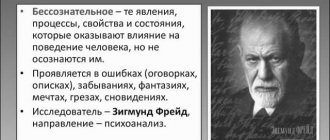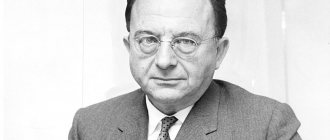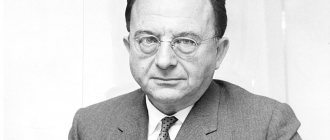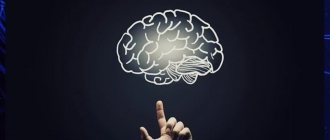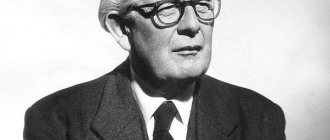GENETIC EPISTEMOLOGY
GENETIC EPISTEMOLOGY (eng. genetic epistemology) is the epistemological teaching of J. Piaget, covering a wide range of problems related to the study of psychological mechanisms that determine the structure of knowledge and its development. According to Piaget, these problems are grouped into 2 main intersecting areas: ontogenetic development, the patterns of which are revealed through psychological experiment, on the one hand, and the general theories of modern logic and mathematics, on the other. Epistemology (theory of knowledge) assumes “the problems of logic have already been solved” , so it includes logical circuits as well as psychological data. G. e. represents a continuation and further development of the biogenetic concept (see Biogenetic law), since, according to Piaget, the same relationships develop between ontogeny and phylogeny as between embryology and comparative anatomy. The development of knowledge - both historically and genetically - has as its starting point a state of relative phenomenalism and egocentrism, in which the leading one is the knowledge of the obvious and the inability to comprehend one’s own position as a knowing subject. The development of knowledge occurs both through construction, due to increasing penetration into the essence of the subject, and through reflection, aimed at one’s own cognitive activity. Each area of knowledge includes elements of general coordination (i.e., a certain logical-mathematical structure), and at the same time, any logical-mathematical structure is a potential carrier of private content; Moreover, the relative weight of each of these components is an indicator of the extent to which a given science is determined in its content by “general coordination” (logic, mathematics) or specific features of objects (physics, biology). By postulating the interaction of subject and object in the process of cognition and deducing from this the progress of knowledge, Piaget implicitly connects this with the postulation of a criterion of truth, as if the general coordination of the actions of the subject automatically presupposes an accurate determination of the structure of reality. G. e. includes an analysis of knowledge both within individual sciences and the relationships between them, the general structure of scientific knowledge in historical development and the system of sciences at the present stage. A special role is given to psychology, which occupies a “key position in the system of sciences” in the sense that other sciences, although “do not depend on psychology in their methods and theoretical structures,” but mastery of these structures “is possible only through the influence of the body on objects , and only psychology allows us to study this activity in its development” (see Psychologism). An example is Piaget’s genetic analysis of the formation of such physical concepts as “speed” and “time duration”, as a result of which he showed that genetically these concepts arise from relations of spatial order.
Stages of intelligence development
Within the framework of genetic psychology, Jean Piaget considered several stages of the development of intelligence. By analogy with the name of each of these stages, the types of intelligence that develop in children as they grow up are also designated.
Features of the sensorimotor stage
Only a born child perceives himself as a single whole with his mother and the surrounding world. In the process of interacting with other people, with toys, he begins to understand that he is separate from them. He also comes to understand that his own actions can affect objects.
Touching a toy hanging above the crib, the baby sees it swinging. Waving a rattle, he hears a sound. This is how a small child gets acquainted with the world, and at the same time he develops action patterns and concepts. They are based on the mechanisms of accommodation and assimilation.
At the sensorimotor stage, the child learns the principle of constancy. It lies in the fact that an object exists even when it becomes inaccessible to the senses (disappears from sight or becomes inaudible).
The baby develops the ability to anticipate the place where an object that is moving but hidden from view should appear.
An important acquisition of the sensorimotor stage of development is the transition from reflex activity to behavior that is caused by curiosity and the desire to experiment.
The child actively explores the space around him, experiments with influencing external objects with different intensities. He needs this to expand the base of patterns, knowledge, and develop thinking.
At the final stage of the sensorimotor period, the child can cope with simple tasks, while he relies on the sensory information he already has. Gradually there is a transition from thinking of a concrete-sensual type to a symbolic one.
Features of the operational stage
This stage of development is characterized by the appearance of speech and imaginative thinking in the child. The baby can already pretend, imagine, use words behind which a certain meaning is hidden.
In the preoperative period, the ability to think logically, manipulate information and use it in the thinking process has not yet been formed. That is why this stage of development is called pre-conceptual.
Features of the operational stage
The child moves to the operational stage of development closer to the age of seven. The baby’s thinking is already developed enough to perform simple logical tasks. But it is still difficult for a child to use logic for mental actions - for this he needs physical interaction with an object. It is difficult for a child to understand an abstract situation or idea.
The operational stage lasts until the beginning of adolescence (12 years). Domestic psychologists who studied the development process combined the operational stage with the formal operational stage. But Jean Piaget considered another important period in the development of personality, its intellect.
Features of the stage of formal operations
During this period, the child develops the ability to think abstractly and actively use logic. The personality moves to the next, higher stage of development (according to Piaget, the highest).
The child is already able to think actively, comprehend information objectively, and uses his existing knowledge to create abstract ideas. An important acquisition of this stage is the ability to predict the result of a certain activity, set a goal (abstract) and act to achieve it.
Irina Sherbul
Types of knowledge [edit]
Piaget proposes three types of knowledge: physical, logical-mathematical and social.
Physical knowledge: This refers to knowledge related to objects in the world that can be acquired through perceptual properties. Acquiring physical knowledge is equivalent to learning in Piaget's theory (Gruber and Voneche, 1995). In other words, thought directly corresponds to experience.
“Piaget also called his view constructivism because he firmly believed that the acquisition of knowledge is a process of continuous self-construction. That is, Knowledge is not somewhere outside, outside the child, waiting to be discovered. a child ready to emerge as the child develops with the world around her... Piaget believed that children actively approach their environment and acquire knowledge through their actions.” [3]
“Piaget identified three types of knowledge that children acquire: physical, logical-mathematical and social knowledge. Physical knowledge,
also called empirical knowledge, refers to the knowledge about objects in the world that can be gained through their perceptual properties.
..Logical -mathematical knowledge
is abstract and must be invented, but through actions with objects that are fundamentally different from the actions that provide physical knowledge….
Social knowledge
is culture specific and can only be learned from other people within one's cultural group.
"[ citation needed
]
How does intelligence develop according to Piaget?
Piaget's scientific work showed that the biological process of human adaptation continues with intellectual development. That is, intelligence is presented as a form of psychological adaptation to the world around us. Since it is constantly changing, the individual strives to adjust his intellect, thereby maintaining balance with the external environment.
The process of psychological adaptation occurs through patterns of action, assimilation and accommodation. An action pattern is an algorithm of interaction with the external environment formed by an individual. For example, we know how to walk, cook food, do something else. We do all this according to the action plan. The process of assimilation is the application of an action pattern to a new object. And accommodation is the process of changing an existing scheme to adapt to a new object or developing a new one.
Assimilation and accommodation are two main cognitive mechanisms that allow us to develop thinking and interaction with the external environment from a young age. And the need to create a balance between oneself and the outside world, to establish harmonious interaction is the main driver for intellectual development.
Thus, the genetic research method in psychology shows that intelligence is not an innate gift. In any case, a person strives to develop, as a result of which the ability for intellectual activity is formed. Throughout life, seeing and feeling its changes, a person strives to develop his intellect and acquire new knowledge. And constant interaction with the outside world is a necessary condition for active development.
Jean Piaget identified the main principle of development in genetic psychology - interaction with environmental objects. It is necessary at all stages of change in intelligence and cognition. Interactions act as sources of knowledge; on their basis, a person builds schemes, action algorithms, and structures.
Piaget's circuit theory[edit]
- Thought goes through a number of stages of development; at each stage formal logic is applied at a certain stage of differentiation, which can be characterized by algebra, in which exactly such and such a mathematical structure is applied, corresponding to the axioms of logic at that stage; this logic manifests itself first in actions, then at a relatively early stage in sensorimotor operations (in the specific mathematical sense of the word, as opposed to "actions", which are equivalent to relations but are not yet mathematical operations), and finally in operations which express thoughts, conscious, purposeful activity.
- The material basis for the transition from sensorimotor intelligence to representation and from representation to conceptual thinking is the internalization of practical activity.
- The successive stages of concepts that appear in the development of the child imply relations of deduction in mathematical logic and in the development of thinking on other planes of development, for example, in the history of science and the history of knowledge in the anthropological field. [2]
Piaget draws on the full range of modern mathematical knowledge, the extensive empirical base of observations of very young children's learning developed at his institute, reports from observations of older children, and general knowledge of the development of historical knowledge.
(1) From the point of view of dialectical logic, we must agree that at every stage of development, at every “definition of the Absolute” in Hegel’s terminology, formal logic is applicable. Piaget's proof of this is amazing, and his demonstration of how the stages of development of a child's thought pass through a certain series, deductive in a certain sense from the point of view of mathematics, is original and profound.
However, from the point of view of understanding development (and this is Piaget's point of view), what is important is not the definition of each stage, but the transition from one to the next; and for this it is necessary to demonstrate the internal contradiction in the logic of this plan.
Since Piaget relies on a mathematical logic more developed than that known to Hegel, it will be necessary to examine these structures to see whether this speculative claim turns out to be true.
(2) The concept of interiorization is indeed the basis of the materialist view of the development of thought. However, Piaget, as a professional child psychologist, falls victim to the objective idealism of any professional who raises the subject of his particular profession from an aspect of the material world to its owner. [The charge of objective idealism is qualified because Piaget states quite unequivocally that the relations conceived in thought exist objectively in the material world].
Thus, since his influential empirical work concerns development in early childhood, he imposes a schema corresponding to this semi-human subject on adolescent development, speculates on its possible reflection in anthropological development, and blends it with the history of child development. science and philosophy. I say "confusing" because Piaget knows that his schemes do not seem to apply in this area. In this sense, the charge of objective idealism might seem unfair, but, confusingly, he does not go further and does not look for the consequences of this discrepancy, but seeks to minimize it.
Focusing on early childhood (as he should; it is his profession, and his institute has provided extensive empirical material), Piaget sees what is biologically (zoologically?) human, but not what is socially (historically) human, and in the end After all, humanity is inherently social.
(3) On the other hand, it should be said that Piaget deals once and for all with any idea of innate intelligence and gives full credence to the prospect of an entirely genetic (i.e. developmental) development of intelligence, suggesting that only animal instincts can be such. as grasping-sucking and sensorimotor “equipment” capable of reflecting highly developed relationships. A weakness of Piaget's theory may lie in the lack of evidence of how a person moves from one stage to another. Can someone move forward from one stage, but go back, and then move forward again?
How to improve intelligence?
So, we found out that it is necessary to develop intellectual abilities in order to adapt to the conditions of the outside world and to be in balance and harmony with it. Improving intelligence represents a transition to more complex forms of understanding reality, gaining the ability to operate with categories and concepts, and to base thinking on logic rather than on emotions. A person himself creates mental structures and patterns, forms his knowledge.
Developing intelligence is especially important in childhood, but it is also important for adults. Vikium offers a course “Development of Thinking”. It will teach you to think effectively, logically and consistently, make constructive decisions and make correct assessments of what is happening.
Source

